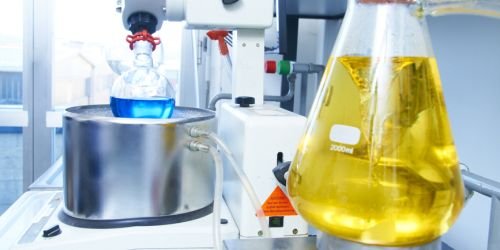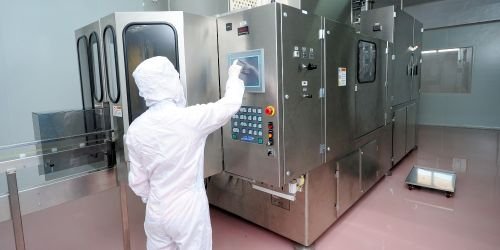GMP Certification – Good Manufacturing Practices

GMP Good Manufacturing Practices
What is GMP Certification?
Good Manufacturing Practices (GMP) certification is a system designed to ensure that products are consistently produced and controlled according to established quality standards. This certification is vital across various sectors, including cosmetics, pharmaceuticals, medical devices, and food production. The primary objective of GMP is to minimize the risks involved in production, which cannot be entirely eliminated through testing the final product alone.
The historical context of GMP dates back to the mid-20th century when various incidents of contaminated and ineffective drugs prompted regulatory agencies to establish guidelines. The U.S. Food and Drug Administration (FDA) was among the first to introduce these manufacturing practices, followed by many countries adopting similar frameworks. Over the years, GMP has evolved to encompass comprehensive guidelines that address all aspects of production, including raw materials, facility maintenance, staff training, and equipment hygiene.
The general framework of GMP certification requires organizations to develop and follow standard operating procedures (SOPs) that document every step of the manufacturing process. This meticulous approach not only enhances product safety but also fosters transparency and traceability throughout the supply chain. Each industry has particular nuances; for example, ISO 22716 provides specific guidelines for the cosmetics sector, aligning tightly with GMP principles to govern manufacturing processes effectively. This ensures that cosmetic products, from formulation to final packaging, are manufactured in a controlled and hygienic environment.
In essence, GMP certification reinforces a culture of quality and safety, helping companies demonstrate their commitment to manufacturing excellence. By adhering to GMP guidelines, businesses can better serve consumers and maintain compliance with regulatory requirements, thereby fostering trust and reliability in their products.

GMP Certification
Certification Requirements for GMP
Good Manufacturing Practices (GMP) certification is a critical benchmark for organizations across various industries, ensuring that products are consistently produced and controlled according to quality standards. To achieve this certification, businesses must adhere to a set of requirements that are designed to foster quality and safety throughout production processes. These certification requirements vary slightly across different sectors, but the core principles of GMP remain consistent.
One of the primary requirements for GMP certification is comprehensive documentation. Organizations are mandated to maintain precise records of manufacturing processes, quality control measures, and employee training. This documentation serves not only as a reference but also as evidence of adherence to GMP principles. Proper documentation ensures traceability and accountability, allowing for swift action in the event of a product failure.
Quality control measures are another essential aspect of GMP certification. Companies must establish robust procedures for monitoring the quality of raw materials, ongoing production processes, and final products. This includes implementing testing protocols for materials and end products, ensuring that they meet predefined specifications before reaching consumers. Additionally, effective quality control checks contribute to minimizing defects and enhancing overall product safety.
Training of personnel is an integral component of GMP compliance. Employees must receive training that covers the principles of GMP, specific operating procedures, and hygiene practices necessary for maintaining product quality. A well-informed workforce is essential for mitigating risks associated with manufacturing errors and contamination.
The physical facilities where products are manufactured must also comply with GMP standards. This includes environmental controls, layout design, and maintenance of equipment to prevent contamination, ensure safety, and enhance efficiency. Regular audits are required to confirm adherence to these regulations, serving as a tool for continuous improvement in manufacturing practices.

GMP Good Manufacturing Practices Requirements
Navigating the Path to GMP Certification
Obtaining Good Manufacturing Practice (GMP) certification is a crucial process for organizations aiming to ensure high quality and safety in their products. The journey to certification involves several steps that organizations must navigate effectively. Initially, it is essential to conduct a thorough risk assessment. This assessment should identify potential hazards in the manufacturing process and evaluate their impact on product quality. By proactive risk management, companies can implement effective controls that address these identified risks.
Next, staff training plays a vital role in preparing for GMP certification. Employees should be well-versed in GMP principles, regulatory requirements, and company-specific standard operating procedures (SOPs). Regular training sessions and refresher courses will help ensure that all staff members understand their responsibilities and the importance of adhering to GMP regulations. This training will not only prepare employees for the certification process but also contribute to a culture of quality within the organization.
Documentation is another critical component of the GMP certification process. Organizations must prepare and maintain comprehensive records that demonstrate compliance with GMP guidelines. This includes detailed SOPs, batch records, quality control documents, and maintenance logs. Properly organizing and updating documentation will facilitate smoother audits by certification bodies and audits by internal stakeholders.
Benefits of GMP Certification
Good Manufacturing Practice (GMP) certification serves as a fundamental framework for ensuring the quality and safety of products across various industries. One of the primary benefits of obtaining GMP certification is the assurance of product quality. Companies that adhere to these stringent guidelines consistently produce items that meet both safety and quality standards, which is crucial for maintaining consumer trust. This trust translates into a significant competitive advantage in the marketplace.
Furthermore, GMP certification positively impacts brand reputation. By demonstrating a commitment to quality control and regulatory compliance, businesses can enhance their public image. Consumers are increasingly inclined to choose brands that prioritize safety and quality, thus fostering brand loyalty and repeat business. In today’s competitive landscape, organizations can differentiate themselves through the visible endorsement of GMP practices.
Adopting GMP can also lead to long-term cost-effectiveness. While initial implementation may require investment, the reduction in defective products and recalls ultimately saves money over time. Effective quality management reduces waste and improves operational efficiency, which can lead to significant financial savings. Moreover, consistent adherence to GMP can minimize the risk of litigation due to product-related injuries, further securing a company’s bottom line.
From a market perspective, GMP certification opens doors to new business opportunities. Many industries, especially pharmaceuticals and food, have stringent regulatory requirements; the possession of GMP certification can simplify compliance processes and enhance a company’s eligibility for lucrative contracts. In addition, many international markets mandate GMP certification, providing certified companies with a strategic advantage when entering new regions.
In conclusion, the myriad benefits provided by GMP certification, including product quality assurance, enhanced brand reputation, long-term cost savings, and expanded market opportunities, make it a worthwhile investment for businesses aiming to establish themselves within their industries.
GMP Certification – Good Manufacturing Practices

GMP Good Manufacturing Practices
What is GMP Certification?
Good Manufacturing Practices (GMP) certification is a system designed to ensure that products are consistently produced and controlled according to established quality standards. This certification is vital across various sectors, including cosmetics, pharmaceuticals, medical devices, and food production. The primary objective of GMP is to minimize the risks involved in production, which cannot be entirely eliminated through testing the final product alone.
The historical context of GMP dates back to the mid-20th century when various incidents of contaminated and ineffective drugs prompted regulatory agencies to establish guidelines. The U.S. Food and Drug Administration (FDA) was among the first to introduce these manufacturing practices, followed by many countries adopting similar frameworks. Over the years, GMP has evolved to encompass comprehensive guidelines that address all aspects of production, including raw materials, facility maintenance, staff training, and equipment hygiene.
The general framework of GMP certification requires organizations to develop and follow standard operating procedures (SOPs) that document every step of the manufacturing process. This meticulous approach not only enhances product safety but also fosters transparency and traceability throughout the supply chain. Each industry has particular nuances; for example, ISO 22716 provides specific guidelines for the cosmetics sector, aligning tightly with GMP principles to govern manufacturing processes effectively. This ensures that cosmetic products, from formulation to final packaging, are manufactured in a controlled and hygienic environment.
In essence, GMP certification reinforces a culture of quality and safety, helping companies demonstrate their commitment to manufacturing excellence. By adhering to GMP guidelines, businesses can better serve consumers and maintain compliance with regulatory requirements, thereby fostering trust and reliability in their products.

GMP Certification
Certification Requirements for GMP
Good Manufacturing Practices (GMP) certification is a critical benchmark for organizations across various industries, ensuring that products are consistently produced and controlled according to quality standards. To achieve this certification, businesses must adhere to a set of requirements that are designed to foster quality and safety throughout production processes. These certification requirements vary slightly across different sectors, but the core principles of GMP remain consistent.
One of the primary requirements for GMP certification is comprehensive documentation. Organizations are mandated to maintain precise records of manufacturing processes, quality control measures, and employee training. This documentation serves not only as a reference but also as evidence of adherence to GMP principles. Proper documentation ensures traceability and accountability, allowing for swift action in the event of a product failure.
Quality control measures are another essential aspect of GMP certification. Companies must establish robust procedures for monitoring the quality of raw materials, ongoing production processes, and final products. This includes implementing testing protocols for materials and end products, ensuring that they meet predefined specifications before reaching consumers. Additionally, effective quality control checks contribute to minimizing defects and enhancing overall product safety.
Training of personnel is an integral component of GMP compliance. Employees must receive training that covers the principles of GMP, specific operating procedures, and hygiene practices necessary for maintaining product quality. A well-informed workforce is essential for mitigating risks associated with manufacturing errors and contamination.
The physical facilities where products are manufactured must also comply with GMP standards. This includes environmental controls, layout design, and maintenance of equipment to prevent contamination, ensure safety, and enhance efficiency. Regular audits are required to confirm adherence to these regulations, serving as a tool for continuous improvement in manufacturing practices.

GMP Good Manufacturing Practices Requirements
Navigating the Path to GMP Certification
Obtaining Good Manufacturing Practice (GMP) certification is a crucial process for organizations aiming to ensure high quality and safety in their products. The journey to certification involves several steps that organizations must navigate effectively. Initially, it is essential to conduct a thorough risk assessment. This assessment should identify potential hazards in the manufacturing process and evaluate their impact on product quality. By proactive risk management, companies can implement effective controls that address these identified risks.
Next, staff training plays a vital role in preparing for GMP certification. Employees should be well-versed in GMP principles, regulatory requirements, and company-specific standard operating procedures (SOPs). Regular training sessions and refresher courses will help ensure that all staff members understand their responsibilities and the importance of adhering to GMP regulations. This training will not only prepare employees for the certification process but also contribute to a culture of quality within the organization.
Documentation is another critical component of the GMP certification process. Organizations must prepare and maintain comprehensive records that demonstrate compliance with GMP guidelines. This includes detailed SOPs, batch records, quality control documents, and maintenance logs. Properly organizing and updating documentation will facilitate smoother audits by certification bodies and audits by internal stakeholders.
Benefits of GMP Certification
Good Manufacturing Practice (GMP) certification serves as a fundamental framework for ensuring the quality and safety of products across various industries. One of the primary benefits of obtaining GMP certification is the assurance of product quality. Companies that adhere to these stringent guidelines consistently produce items that meet both safety and quality standards, which is crucial for maintaining consumer trust. This trust translates into a significant competitive advantage in the marketplace.
Furthermore, GMP certification positively impacts brand reputation. By demonstrating a commitment to quality control and regulatory compliance, businesses can enhance their public image. Consumers are increasingly inclined to choose brands that prioritize safety and quality, thus fostering brand loyalty and repeat business. In today’s competitive landscape, organizations can differentiate themselves through the visible endorsement of GMP practices.
Adopting GMP can also lead to long-term cost-effectiveness. While initial implementation may require investment, the reduction in defective products and recalls ultimately saves money over time. Effective quality management reduces waste and improves operational efficiency, which can lead to significant financial savings. Moreover, consistent adherence to GMP can minimize the risk of litigation due to product-related injuries, further securing a company’s bottom line.
From a market perspective, GMP certification opens doors to new business opportunities. Many industries, especially pharmaceuticals and food, have stringent regulatory requirements; the possession of GMP certification can simplify compliance processes and enhance a company’s eligibility for lucrative contracts. In addition, many international markets mandate GMP certification, providing certified companies with a strategic advantage when entering new regions.
In conclusion, the myriad benefits provided by GMP certification, including product quality assurance, enhanced brand reputation, long-term cost savings, and expanded market opportunities, make it a worthwhile investment for businesses aiming to establish themselves within their industries.

